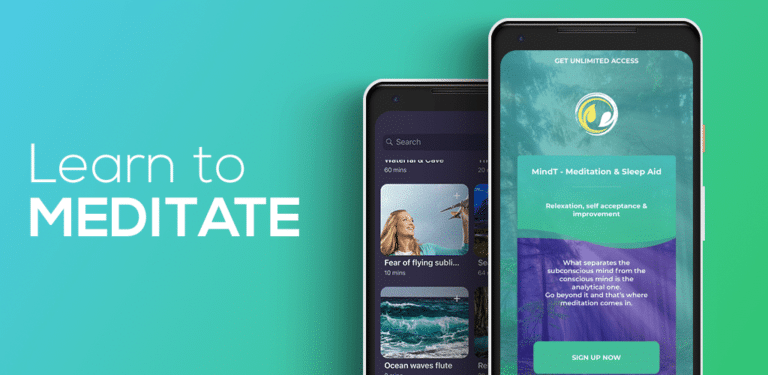How Meditation Breaks The Addiction Cycle
Published on February 6, 2023 – Last Updated on February 6, 2023
Addiction is a complex and challenging condition that can impact individuals differently. Overcoming it requires significant effort, perseverance, and commitment, and there are many obstacles that individuals must navigate along the way. Some patients may feel discouraged by the difficulties some of these present, tempting them to go back into the cycle.
Fortunately, there are many ways to slowly but surely bring yourself out of it. Experts recommend that you visit a treatment facility to seek professional help, join a support network, make lifestyle changes, and practice mindfulness and meditation.
The latter has been used for centuries to promote physical, mental, and emotional well-being. In recent years, it has become increasingly recognized for its potential to help people break the cycle of dependence on drugs, alcohol, and other harmful substances or behaviors.
Whether in recovery or just seeking to improve your overall health and well-being, meditation can provide various benefits that help you achieve your goals for wellness. This post will explore how this activity can be a powerful tool in ensuring long-term recovery. If you’re interested in learning more, here’s what you need to know.
What Is Meditation?
Meditation is a mental practice that focuses one’s attention and awareness on a specific object, thought, or activity. Its main goals are to increase mindfulness and reduce stress. It can be practiced in many forms, including mindfulness meditation, body scan meditation, loving-kindness meditation, and visualization meditation, among others.
This activity is all about cultivating greater self-awareness and improving mental, emotional, and physical well-being. Research has shown that regular meditation can positively impact mental health, reducing symptoms of anxiety, depression, and other mood disorders while improving focus, attention, and cognitive function.
Meditation is easy to learn, can be practiced anywhere, and does not require special equipment, making it accessible to people of all ages and backgrounds. It also benefits individuals struggling with addiction.
You may find it as one of the many alternative treatments provided by recovery experts. Try checking out services offered by facilities like Jackson House Rehab to learn more about your options.
How Does Meditation Aid Addiction Recovery?

Here is a list of the many benefits this activity provides for people struggling with addiction.
- Reducing Stress
Stress is a common trigger for addiction and can contribute to the cycle of dependence. It can lead to feelings of anxiety, depression, and hopelessness, which can make it more difficult to turn to substances for relief.
Meditation has been shown to effectively reduce stress levels, which can help dampen the urge to binge on substances. By slowing down racing thoughts and calming the mind, it can promote a sense of relaxation and control. This reduces the risk of relapse and makes it easier to maintain sobriety.
- Improving Mood
Mood is a significant factor in addiction, as some people who struggle with persistent negativity from trauma, their surroundings, or their medical conditions are likely to turn to drugs, alcohol, or other addictive substances as a means of coping.
Meditation has been shown to positively impact mood, helping reduce feelings of fear, isolation, and helplessness to improve overall well-being.
Thanks to these benefits, meditation is helpful in keeping patients in the right state of mind, making it easier for them to stay committed to their recovery goals. Additionally, it can help individuals become more self-aware and better understand the root causes of their addiction, making it easier to develop strategies for avoiding triggers and overcoming cravings.
- Improving Emotional Regulation And Impulse Control
For some patients, addiction involves difficulty regulating emotions and impulses, leading to repetitive and harmful patterns.
Meditation has been shown to improve self-regulation. It does this by increasing awareness of emotions and promoting the development of healthy coping strategies.
By teaching individuals to focus and direct their attention, meditation also improves impulse control, helping them to make more mindful decisions and resist urges. This way, it encourages lasting recovery from addiction and promotes positive habits and behaviors that support well-being.
- Increasing Self-Awareness
Self-awareness is a crucial component of managing behavior, making it a huge part of breaking the cycle of dependence. By becoming more mindful of their thoughts and behaviors, individuals can make conscious decisions about their continuing. Essentially, it gives back the power to live healthy lives despite their circumstances.
Meditation is a powerful tool for increasing self-awareness, as it helps foster contemplation and self-reflection as regular activities. Through constant practice, individuals can gain insight into their patterns of behavior and emotions and develop a deeper understanding of the causes behind their addiction.
This increased self-awareness can be critical in breaking the addiction cycle, as it empowers individuals to take control of their recovery and make positive changes in their lives.
- Building Resilience
The journey of recovery can be challenging, and setbacks and challenges are an inevitable part of it. So, having enough resilience should help individuals overcome these roadblocks, allowing them to maintain their trajectory toward recovery, even in difficult situations.
Meditation has been shown to increase resilience, helping individuals to cope with stress, build emotional regulation, and develop greater emotional intelligence. By practicing mindfulness and self-awareness through meditation, individuals can become better equipped to handle challenges and maintain their focus on their recovery goals.
- Promoting Self-Care
Individuals in recovery need to prioritize their health and well-being if they want to recover. Fortunately, meditation can be a valuable tool for promoting self-care, as it helps individuals prioritize their needs and develop a greater sense of self-compassion.
With meditation, you can reduce stress, improve your mood, and develop greater self-awareness. The latter is what helps individuals better understand their needs and develop a more balanced and healthy approach to managing themselves. In turn, this makes it easier to avoid triggers and stay focused on recovery goals.
- Improving Mental Health
Mental health problems have a terrible connection with substance abuse. Individuals who struggle with mental health issues such as anxiety or depression are usually susceptible to chemical dependence. The reverse also applies, forming a cycle of continuous problems that lower a person’s quality of life.
Meditation has been shown to positively impact mental health, making it a powerful source of ancillary support to stave off the effects of most mental health disorders. By promoting a sense of self-direction and stability, meditation can help individuals with dual diagnoses maintain their care plans.
- Enhancing Mindfulness
As mentioned before, meditation is a potent tool for enhancing mindfulness. It allows people to focus on the present moment and thoroughly process their feelings and thoughts.
By practicing mindfulness regularly through meditation, individuals can become more attuned to their own selves, allowing them to develop a realistic, healthy view of their own state and their prospects for improvement. In turn, this grants them greater emotional intelligence and self-regulation, making it easier to handle challenges and maintain their commitment to recovery.
- Cultivating Empowerment In Your Choices
Many addiction disorder patients often refuse help because believe their situation is already beyond that. Discouragement is a strong enemy when it comes to recovery, especially when the discourse around substance abuse continues to be muddled to this day.
Obviously, their perceptions may not reflect how things actually are. They’re simply stuck in patterns that only serve to perpetuate their problems.
Meditation offers a way out. By providing individuals with a sense of calm and clarity, it can help them approach life’s challenges with greater confidence and resilience. This is the key to making positive, empowering choices for oneself.
By promoting mindfulness and awareness, meditation can help individuals identify thought patterns that may hold them back and replace them with more progressive ways of thinking. It allows you to cultivate a stronger sense of self-awareness and self-care, supporting lasting change.
- Helping Reduce The Risk Of Relapse
Addiction is the result of internal and external factors. Genetics, environment, trauma, stress, illness, discrimination, and poverty create a potent mix of issues that may lead a person to turn to substance abuse. They also explain why some experience a relapse at some point in their sobriety journey.
All of these problems will require more extensive addressing to manage. However, addiction patients can start creating change in themselves with the help of meditation.
Meditation reduces stress and anxiety, two factors that raise the risk of relapse. When one has a sense of calm and clarity, they’re more equipped to make proactive decisions for the short and long term.
Start Practicing Meditation
Whether you’re well into your rehabilitation program or starting out, this activity offers tons of benefits that can support you in your journey toward sober living. By reducing stress, improving mood, increasing self-awareness, building resilience, and promoting self-care, meditation is a great addition to your set of tools for betterment.
Consider talking to your counselor or therapist about different ways to practice meditation. There’s a method that can fit any lifestyle and preference. Never hesitate to try different ways of dealing with your substance abuse issues.
The journey is long and hard. But with tools like meditation, your path will always be clear.






